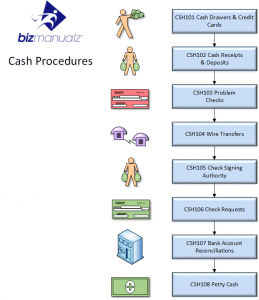
Artificial Intelligence is a branch of computer science dedicated to creating computers and programs that can replicate human thinking. Some AI programs can learn from their past by analyzing complex sets of data and improve their performance without the help of humans to refine their programming. In this article, we’ll discuss the major benefits and drawbacks of adopting AI, both in everyday life and in business. We’ll also talk through some use cases for AI, to give you an idea of how AI can help in your life. AI could help the world by providing solutions to mitigate the risks of climate change, promote safer and more effective healthcare, improve education, and strengthen cybersecurity, among many other applications. Climate change is arguably the greatest threat currently faced by mankind, with future generations and the well-being of the very planet at stake.
While AI can perform specific tasks with remarkable precision, it cannot fully replicate human intelligence and creativity. AI lacks consciousness and emotions, limiting its ability to understand complex human experiences and produce truly creative works. AI is based on pre-loaded facts and experience and is proficient at repeatedly carrying out the same task. It cannot be accessed and utilized like human intelligence but can store infinite data. If asked to complete anything else, they frequently fail or provide useless results, which can have adverse effects.
To become successful in any kind of business, all you need is accurate collection of data, easy processing, adequate analytics, which further forms the backbone of decision-making and is required for vital insights. But, the kind of volume and variety of data which is generated cannot be just handled by humans at this large- scale. Efficiency and productivity gains are two other big benefits that organizations get from using AI, said Adnan Masood, chief AI architect at UST, a digital transformation solutions company. AI is reshaping the entertainment industry by creating new content, enhancing user experiences, and optimizing production processes. AI enhances education by personalizing learning experiences and improving administrative efficiency. Netflix’s AI algorithms analyze viewing history and preferences to recommend shows and movies more likely to interest the user.
What kind of Experience do you want to share?
This all culminated with the so-called “AI boom” that became most prominent in 2022, as large language models and AI chatbots, like ChatGPT, were released for public usage. Since then, AI has taken off, with many businesses embracing the tech in exciting, innovative ways. Other industries use AI to support R&D activities, such as in the healthcare space for drug discovery work and the consumer product goods sector for new product creation. The use of AI how do i calculate depreciation using the sum of the years’ digits in financial reconciliation, for example, delivers nearly always error-free results, whereas that same reconciliation when handled, even in part, by human employees is prone to mistakes.
key benefits of AI for business
Businesses of all sizes have found great benefits from utilizing AI, and consumers across the globe use it in their daily lives. Before we delve into the many possible AI applications and benefits of AI technologies, it’s worth taking a moment to explain what this technology is all about. Thus, it can be referred to as a magnificent creation of next-generation developments and progressions which leads to end-to-end automation and orchestration of various complex operations and thus reduces human error. Artificial Intelligence has pushed the boundaries of the way computer machines used to operate and functions to make human lives easier. AI is a mammoth structure of super computers which helps in facilitating machines to act seamlessly and perform many human-like tasks.
Sticking to Norms and Experience
Knowing the disadvantages will help the deployer to solve these problems, allowing for a better, more efficient and ethical use of AI in the workplace. Similarly to the point above, AI can’t naturally learn from its own experience and mistakes. Humans do this by statement of retained earnings definition nature, trying not to repeat the same mistakes over and over again. However, creating an AI that can learn on its own is both extremely difficult and quite expensive.
Currently, almost all resources that are dedicated to AI aim to speed up the development of this technology. Efforts that aim to increase the safety of AI systems, on the other hand, do not receive the resources they need. Researcher Toby Ord estimated that in 2020 between $10 to $50 million was spent on work to address the alignment problem.18 Corporate AI investment in the same year was more than 2000-times larger, it summed up to $153 billion.
Despite their advanced capabilities, AI systems often need more common sense reasoning. They can process and analyze vast amounts of data but need help understanding context, making intuitive judgments, or adapting to new and unforeseen situations. This standard chart of accounts limitation can lead to errors or inappropriate actions in scenarios that require nuanced understanding and flexibility. Unlike humans, AI lacks the innate ability to grasp everyday knowledge and social norms, which can result in logically correct decisions but are practically or ethically flawed. AI enhances decision-making by analyzing vast amounts of data quickly and accurately, identifying patterns and insights that might be missed by humans.
- According to a study by Statista, the global AI market is set to grow up to 54 percent every single year.
- Indeed, one study found that AI could contribute a whopping $15.7 trillion to the global economy by 2030.
- As AI becomes more commonplace at companies, it may decrease available jobs, since AI can easily handle repetitive tasks that were previously done by workers.
- AI lacks consciousness and emotions, limiting its ability to understand complex human experiences and produce truly creative works.
- This tech is most certainly here to stay, and it’s only going to get bigger, better, smarter, and more influential in so many different industries, as well as in people’s personal lives.

Perhaps the most notable example of this would be the program AlphaGo, developed by Google, which taught itself to play Go and within three days started inventing new strategies that humans hadn’t yet thought of. Though if the AI was created using biased datasets or training data it can make biased decisions that aren’t caught because people assume the decisions are unbiased. That’s why quality checks are essential on the training data, as well as the results that a specific AI program produces to ensure that bias issues aren’t overlooked. On the other hand, provided the AI algorithm has been trained using unbiased datasets and tested for programming bias, the program will be able to make decisions without the influence of bias. That can help provide more equity in things like selecting job applications, approving loans, or credit applications. The first major advantage of implementing AI is that it decreases human error, as well as risk to humans.
As any person who came close to the core would have perished in a matter of minutes, at the time, there were no AI-powered robots that could assist us in reducing the effects of radiation by controlling the fire in its early phases. “I think AI will bring a net improvement in many areas, but there will be losers in society,” Earley added. “And as long as people are fooled into thinking this is real content, it will be a problem.” “The nature of the risk hasn’t changed, but the magnitude and the scale of the risk has. It’s at a much larger scale,” Calvino said. One notable incident happened in 2023, when a New York lawyer faced judicial scrutiny for submitting court filings citing fictious cases that had been made up by ChatGPT.

Leave a Reply